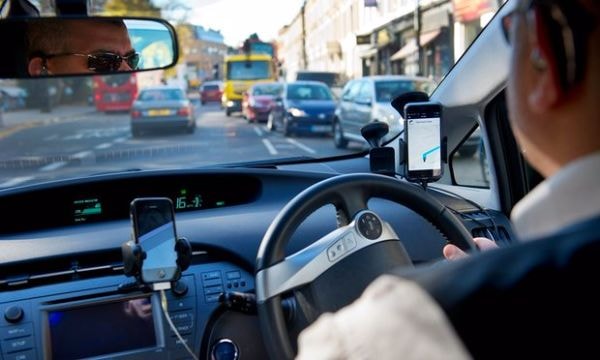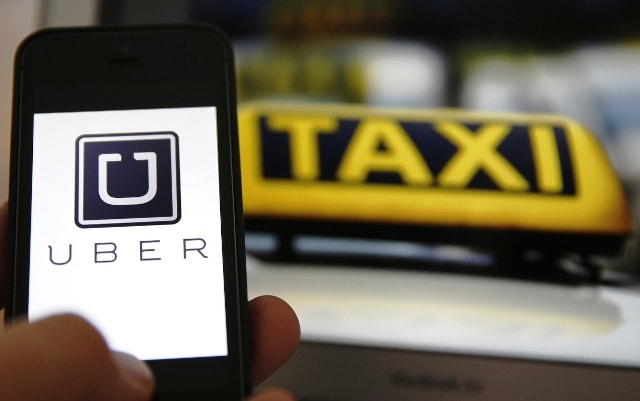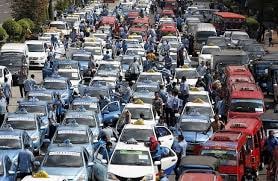Uber - convenience or negative?
(Baonghean) - Uber is no longer a stranger to many people using public transport services in major cities around the world, including Vietnam. Besides its convenience and competitive prices, Uber's operations are still controversial...
What is Uber?
Uber is the name of a technology company that provides online transportation services worldwide, headquartered in San Francisco, USA. Uber's operations revolve around an application of the same name installed on smartphones.
Using the app, users can enter their request for a ride to the nearest driver who is willing to provide the transportation. Uber drivers use their own personal vehicles and driving for Uber is considered a flexible job.
The estimated fare of the trip, the location of the driver, the passenger, and the trip route are all calculated and displayed on the phone by this application. As of August 2016, Uber's service is available in 66 countries and 545 cities worldwide. Uber's business model has become a trend called "Uberification" meaning sharing economy, this trend is learned by many other companies.
 |
| Uber drivers use personal vehicles and actively and voluntarily transport passengers. Photo: Theguardian |
Why is Uber successful?
Officially launched the Uber application in 2011 with an investment of 44.5 million USD, up to now, the value of this company has reached more than 50 billion USD. Besides technological superiority, Uber brings conveniences to users that traditional taxis cannot have.
Instead of depending on the driver's route and the meter, this application allows users to know in advance the cost of the trip as well as their route. In addition, payment is also supported in many forms such as cash or direct deduction from the credit card without any intervention from the customer.
Uber does not allow hailing a car but requires an app, so everyone can use the service without being turned away by a driver. According to Bloomberg, Uber makes it easier for poor people to catch a taxi.
 |
| This service is pre-installed on mobile phones. |
At the same time, with the location of both the customer and the driver, it is easier to find a pickup location, especially in complex weather conditions. The company's service also helps reduce traffic congestion as Uber drivers will not have to drive around to pick up passengers. Uber allows users to rate drivers after each trip using a scoring method.
Uber uses an automated algorithm to increase prices during times of surge in demand. Surge pricing attracts more drivers and reduces the number of customers requesting the service. Of course, this is met with resistance from customers when prices increase during peak times such as holidays or bad weather conditions. However, according to Uber CEO Travis Kalanick, “...
This is something so new, it will take time for people to accept it. Fixed-price taxis have been going on for the past 70 years.” In fact, increasing prices when demand increases is in line with economic law, it gives drivers more motivation and participation in transportation, and only customers who really need the service will use it.
In addition, this company also creates competition with traditional taxis, indirectly increasing the quality of service in the passenger transport industry in general. Uber and other technology companies create a transportation market with more supply for customers, reaching the suburbs of big cities. Besides Uber service, this company is developing some other utilities such as self-driving taxis, helicopter taxi service, or UberPop, an application for people who need to share a car with each other.
Uber's Problems
Despite the benefits of Uber, the technology company has faced a lot of criticism. Anti-Uber protests by taxi drivers and legal actions against the company by governments are taking place around the world. Detractors argue that Uber is unfair competition by facing less regulatory burdens, not paying taxes or licensing fees like other traditional taxi companies.
In addition, the quality of drivers, passenger safety as well as workers' rights at Uber have also been criticized by those who do not support it. Protests by traditional taxi drivers have taken place in Germany, India, Spain, England, Canada, Italy...
 |
| Traditional taxi drivers block a boulevard in Jakarta, Indonesia to protest against Uber, |
In 2014, the technology company was banned by courts in countries such as Spain for unfair competition, or in India for the accusation of a driver raping a female passenger. In the Netherlands, the company was banned from its UberPop service for transporting passengers without a license. Or most recently, in Vietnam, the Ministry of Transport reminded Uber to register its business in the right industry.
The battle between traditional taxi companies and technology companies providing transportation services is still not over. Uber continues to pursue legal cases. Despite many obstacles, the company has attracted many investors. Last June, Saudi Arabia invested $ 3.5 billion in the company, and the world's largest car manufacturer Toyota agreed to cooperate with Uber by making it easier for drivers to rent its cars.
Phan Vu
| RELATED NEWS |
|---|

